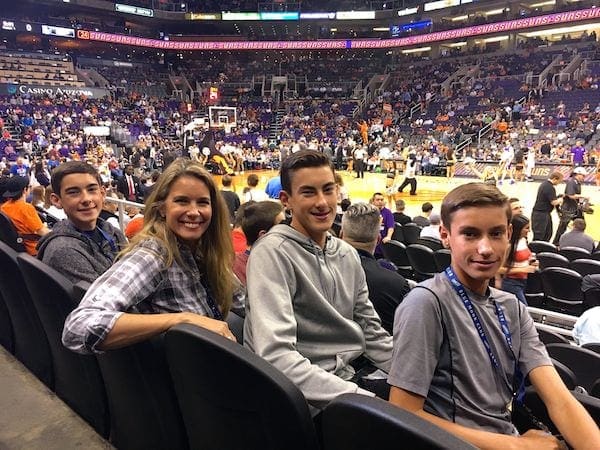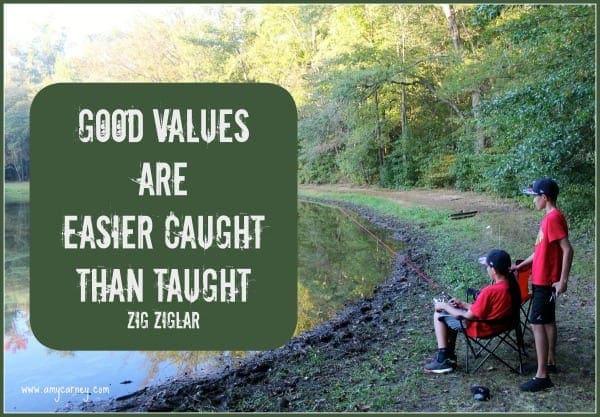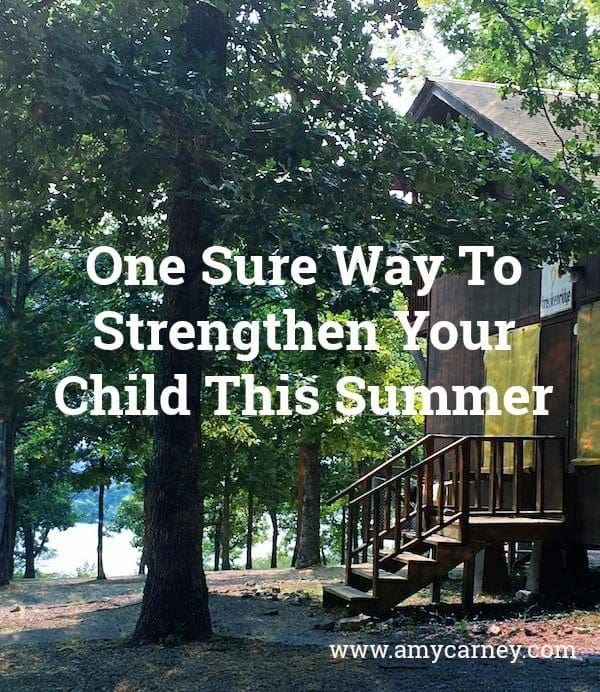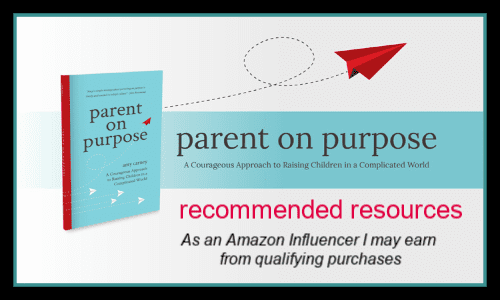8 Things You Should Do for Your Teen
My recent post about 8 things you should stop doing for your teens this school year went wild around the web. Parents are weighing in and while the majority agree with integrating life skills into their kids lives, others have dubbed me uninvolved, lazy and say they feel sorry for my kids.
One reader said, so what do you do exactly if you aren’t doing these things for your kids? So glad you asked…
1. Laugh and enjoy life together
Don’t get caught up in the to-do list of the day. Make connective time with your kids a priority because you can’t get one second of this back. The worst thing that can happen to us is that we have regret when our kids head out the door at 18 and we realize that we didn’t take enough time to enjoy their childhood. Seize the simple moments.

Taking crazy family selfies after dinner on our vacation in Hawaii.
Purposefully prioritize time to laugh and fit in carefree fun with the kids no matter how old and cool they get. Take breaks and vacations when and where you can to reconnect with your loved ones. Memories of time well spent together will sustain us when everyone dismantles in a few years.
2. Spend one-on-one time with them
When you have teenagers, you have to be strategic to score one on one time with them. Not so long ago, I could plan anything out of the ordinary and my kids would be game. Unfortunately, this is no longer the case. Most ideas I come up with are met with a blank stare and a “not happening, Mom.” I must be in tune with my kids’ passions if I want to have a close relationship with them.

Suns game with the sons!
My sons love anything sport so I take them to various college or pro baseball and basketball games each season. Or I take them to a new restaurant because food is always an easy way to a guy’s heart. With my other kids, I may choose hikes, movies, local concerts, plays or shopping excursions that feed their soul and in turn, fuel our relationship.
3. Encourage them to advocate for themselves
Last year, a teacher forgot to input one of our son’s homework grades at the end of the quarter and it affected his final grade. The mistake had my son very upset. (He went from a high A to a low A, but to him, it was close to the end of the world.) He talked with the teacher and she apologized but said there was nothing that could be done because grades had already been finalized. My son continued to talk about his frustration at home, so I advised him to go to the principal if he felt so strongly about it. We then talked about forgiveness and letting this mistake go, which is what he ended up doing.
What I wasn’t going to do was get involved with the teacher, even though I believed he was right. It’s hard not to write that email when our child has been wronged, isn’t it? It takes major self-control to step back sometimes. But my son needs opportunities to learn to work things out in his world without Mom swooping in for the rescue.
4. Gather for family meals
Our family dining table is a sacred space in our home. A lot of beautiful, and usually loud, bonding goes on around that table. I wrote that I no longer make weekday breakfasts or pack school lunches, but I cherish our dinnertime together.
Sharing regular meals as a family has been proven to be one of the most important things we can do in our homes. Connections are made during conversations over food. Typically, teens are spending less time with family and more time with peers, so family mealtime is an important time to be together.
5. Support their passions
One of the most exciting aspects of being a mother is watching my kids choose their own unique paths. It intrigues me to see what makes them tick. I found myself as a volunteer judge at the high school speech and debate tournament that one son was competing in last weekend. How in the world did I end up there in my life?
I love finding myself in environments that I would never experience without my children. I’m on the sidelines of many games every weekend as well because that’s what my others love to do. I don’t yell out or provoke them after a game, because my role is to simply support them. Their passions are not my passions and their interests are not mine. My kids know that I’ll be there when I can but that I’m not wrapped up in their performance.
6. Be the person you want your child to be

Practice what you preach because your kids are watching you. How well are we living our own lives according to what we say is important to us? Model the values that you want to see in your kids because what they see you doing just may rub off.
I’m mindful that my children are watching me. They are seeing if what I say matters match up with my actions and yours are doing the same!
7. Create opportunities to build empathy and compassion
In this me, myself and I culture, it’s important that we create opportunities to serve others on a regular basis. Weave giving into your family culture so that serving others becomes who you are instead of what you do. If we want to raise kind and caring kids then we must put as much emphasis on caring for others as we do achieving good grades and winning games.

Early Saturday morning serving with Kitchen on the Street with two of my kids!
8. Talk technology
Got kids with high tech devices that resemble a body part? Me too. We have to balance giving our teens the freedom to communicate with their peers while letting them know that we will check their phone any time we feel it necessary. Follow your kids on whatever social media feeds they are using. Know their passwords so you can scroll through Instagram and see what their friends are posting on spam accounts. It is eye-opening. I always tell mine to remember that other parents are watching them as well. I agree with granting my child privacy, but never checking in is a mistake. We definitely grant our teens freedom and space, but they know that we care enough to check in as well.
What else should we be doing for our teens today?








Keep inspiring your clan, while inspiring us along the. Way ????
Another point readers should see is that you didn’t wake up one day and decide not to wake your children, or feed them breakfast before school. From birth you put time in grooming them, loving them and teaching them how to get to a point of independence . You have taught them along the way to take ownership and pride in what they do. That is so much harder then doing everything for them. Doing everything for your kids is quicker, easier and takes much less effort because we can get it done so much more efficiently. So when people ask” what do you do?” I would say work effortlessly on raising responsible, capable, and most importantly happy children.
Love you Girl!
True. It was easier me, as a control freak, however well intentioned to “help” my kids. Now we (and they) are paying a price as they are running to catch up with on independence. My bad
Excellent response. These are teens not toddlers. I couldn’t agree more. As a mother, I want my sons to be prepared to make good choices before going to college. Let them learn that a good breakfast verses no breakfast will give them the energy to get through the day. Let them learn that procrastination or forgetting to turn in homework will not help achieve success. We will not be there in college to assist them, so explain & let them learn these life lessons now. Middle School & High School are the place to allow your children to stumble & fall so you can mentor them through it. College is expensive…make sure they are prepared to put their best foot forward & land that first job.
These are all such great ideas!!!
I love to keep rereading this so I can remind myself!!!! It’s easy to get caught up in everyday chaos????????
Please keep in mind there are children who take longer to become both attached and independent. Those who have experienced trauma and are adopted may have a harder time advocating for themselves. No plan for parenting is a good fit for wvery child and the point of balance is different for each one. I agree with using natural consequences as the real life teacher. Thanks for the reminder that there is need to back off and let kids fly on their own.
Yes, we recently adopted a 10-year old boy and he definitely needs more assistance. It’s great to watch him feeling empowered in small areas though such as using his alarm clock or beginning to figure out what he wants for breakfast and grabbing the items himself. Thanks for reading and commenting Jesse!
Go Amy!
I am very much raising my children to become independent people but mine are still quite young (9, 7, 1). I’d like to know how to help kids stand up for themselves or talk to teachers. My 7yo reminds me so much of myself at his age; loves his teacher but does NOT want confrontation!
Even last year, he told me he got in trouble (mostly verbal warnings) for talking in circle time. I asked him why he was talking and he said it was sooo long. He’s a very active boy (like most boys!). So I suggested that he ask his teacher if he could stand up in the back during this time. Same with worksheets at his desk, just ask if he could stand up instead of sitting down. He wouldn’t do it. He was embarrassed and didn’t want to ask (what if she said no?).
How do you encourage a kid like that? I was like that well into high school!
Hi Randi! My kids are a lot like this as well. Who likes confrontation? Just continue to talk it through with your kids at home like you are doing. I figure the teacher will let me know if something is really a problem or something I need to get involved in (which has definitely happened). Or if your children ask you to talk to the teacher because they’re too embarrassed, then perhaps you call a meeting all together until they are more mature and able. With mine in high school, they would be mortified if I was calling their teachers or coaches. So as uncomfortable as it can be for them to communicate with adults in charge, they know they have to because they know I shouldn’t be the one speaking for them.Thanks for reading and commenting!
Hi Randi, starting when my daughters were in grade school, I would have a role play conversation with them like I was the teacher. Sometimes their reluctance comes from not having a clue as to how to even start that kind of a conversation. I would encourage them to be humble and always be respectful and would give them an idea of how to start. It only took a couple of times and then they were off to the races. This skill of appealing to an authority figure served them well through high school and was absolutely vital as they went through college. We also had a saying in our family of, “all they can say is ‘no’ ” meaning it’s not the end of the world to be told “no”, it just means there’s another solution to the dilemma. Hope this helps!
Melanie
Role play is a very powerful teaching tool! Great idea.
I had to stop myself from rushing home to deliver something to school for my daughter. But your article about raising capable adults madde me reallise that she needs consequences! My daughters will always be my babies, but someday they will be adults too.
I shall take this article to heart as well.
How do you handle it when the child, who is fifteen and Soph first semester brings home a 2.5 gpa. Then current semester is at a 1.8. Up until last year, was in top 1% of national tests. What would you do then?
Thanks for reading Jim. I am no expert and wading the parenting waters with you, but I would definitely involve myself if I saw a change like this. I believe when we see a big shift in our kids grades or lack of effort or desire in other areas we must help them figure out why it’s happening and what changes could be made. Is technology getting in the way? Social life? Sports? Activities?
Technology and social life, no sports.
We took my son’s phone away during the week and it helped him a lot. It was actually a weight lifted for him to not be plugged in ALL the time. He didn’t necessarily study more at home but he went to bed earlier and got homework done and just had some downtime. We saw an improvement in both grades and his attitude.
I LOVE this idea! Thanks for sharing, I am going to really consider this one.
Certainly agree with this and have had to do the same with my own!
I am a middle school teacher. I cannot tell you how many emails I get from parents about grades – of course usually the week or two before final grades are due. My response is usually “have your child come and talk to me”. That works for some ( and I make sure to praise and compliment the kids who do approach me) but other parents get SO ANGRY when I suggest that. I have had parents demand I handle it and respond immediately!! They tell me their child is too shy or scared of me and their job is to protect them. And I’m a really nice person!!
I also do not accept late work dropped off my mommy. Boy does that get me in trouble with parents!! The horrible and hurtful emails I get from these over indulgent parents would turn your stomach.
Keep writing Amy!! Your views are spot on!!
I have friends who are teachers and deal with parents like this as well. Very sad! And don’t those parents realize that you can’t help but view their child differently because of their antics. Teachers back in the day did not have to deal with this parental interference. What is happening? Thank you for reading and commenting Kate! God bless you for teaching our youth!
I agree with everything you are saying. The big difference I see from when I went to School versus now, The school involves the Parents way too much. That can be good or bad. I always think back to the 80’s when I went to school and how all the parents where not involved in every tiny aspect. Today, mommy has to sign assignment pads (younger kids) mommy has to go online to see the grades and the school work that is not handed in, papers and more papers, etc.. this is where it all starts, in my opinion. My mother never knew if and when I ever had homework. She never inquired about it because the teachers MADE the kids responsible for it. The only time a parent was contacted is when the child was failing a class. The schools are forcing this helicopter parenting and that’s where it all starts. Thank you.
I agree with you! Some middle school teachers send weekly emails with what’s going to be coming due for work, etc. I ask them to forward it to my child, because they are the student. I think a lot of teachers today have gotten backed into a corner to coddle kids because that’s what they feel parents want. Parents can’t stand not knowing what’s going on with every aspect of their child’s lives today. Thanks for reading and commenting Colleen.
What do I do if my mom is too involved? (I am a student)
Talk to your Mom about the ways you view that she is too involved. It’s very hard for a lot of Mothers to let go and let their kids take on responsibilities for their lives because they care so much. What is she not allowing you the space to do yourself? Thanks for reading!
I just read your “8 things not to do” and your “8 things to do” lists. What bothers me about the “not to do” list is the lack of balance — the generalized idea that your child will be completely unabled to function if you do any of the items you list.
I did some of those things because my family dynamic is significantly different: I have one child as opposed to 5.
I didn’t wake my daughter daily once she hit high school (might have been sooner but when I stopped is irrelevant). I did, however, make her lunch almost every day. Not because I was worried that she wouldn’t eat right, but because it was an opportunity to connect with her before she started her day. I’m a reporter. Much of my life revolves around covering councils and school boards in multiple towns. Dinnertime is pretty much everyone for themselves. So that morning connection was incredibly important.
I also checked up on her grades frequently to make sure she was doing what she was supposed to be doing. I couldn’t sit and supervise homework. And I didn’t do her school projects. Every boss I’ve ever had keeps tabs on what employees do daily. Checking up on the portal to make sure she was doing her homework was my way of holding HER accountable.
I agree with you on the idea of intervening with coaches. That is one area where I draw the line because I have been a coach (club not school) and I have dealt with those parents. I did not intervene with a coach who completely crushed my daughter’s spirit. I pushed her to talk to the coach, who blew her off repeatedly. It was incredibly difficult. When your kid is losing confidence in her ability to do anything because a coach has undermined her in the one area she felt really strong, it is brutal.
However, I think there is a balance with teachers. I did email teachers from time to time when I saw issues with my daughter’s grades — not to challenge what the teachers were doing, but to get insight and advice from them so I could determine whether we needed to seek tutoring or something else. In one instance I found out my daughter was really withdrawing from the rest of the class in a particular subject and it was a red flag about a serious issue that needed attention. I also contacted teachers because I knew that every kid bends the truth sometimes if they believe they are in trouble and I wanted to get an accurate picture of what was going on, and when I did, I made it clear to the teachers that I was not inquiring to attack them.
That said, in both of those instances you have to consider what is age appropriate. The vast majority of 13- and 14-year-olds are not emotionally equipped to speak up because they are still at the age where standing up to the adults in your life equates to being disrespectful no matter how polite you are to them. My daughter was 16 before she was really strong enough to take on that and even then sometimes she was too intimidated, because she respected authority.
I also think it’s important to be mindful that sometimes when a child is having an issue with a coach or a teacher that there may be issues where they need us to stand up and speak out for them — particularly if that child is being exploited emotionally or sexually. It’s easy to overlook that if you’re telling your child to deal with a conflict with a coach or a teacher themselves. Our kids absolutely need to know that we will stand up for them, and if we always push them to deal with an issue themselves they may end up feeling they can’t talk to us about something critically important. Again, it’s all about balance.
And yes, I did her laundry. With just three of us, it was more efficient and more economical to do all of it together. Were there times she got snotty about something not being ready? Yes. And I put her in her place when she did that. When she graduated from high school last year, she made a point of thanking me for everything I had done — including the times when I ran forgotten sports bras to the school that was less than 10 minutes from the house. Why? Because my mother had done that for me and it didn’t hinder me from becoming a fully functioning adult.
I do agree with you 1000 percent on the issue of technology. We as parents must keep tabs on what they are doing online and on their phones because they are at risk in ways we never were as kids. Cyberbullying has taken the name-calling we experienced to levels we simply cannot comprehend. Predators can get to your children in your home, right under your nose, no matter how “good” your child is. Because that’s how slick some of these predators are.
I don’t think you’re lazy. Five kids is a handful. I think anyone who assumes that you are is really being unfair. But I also think it’s a bad idea to paint parents who do the items you label bad as crippling their children’s ability to be adults because it doesn’t take into account other things we may be doing to push our kids in that direction.
My daughter just finished her freshman year of college. She attends a school that does not have dorms, so she lived in an apartment all year. That meant cooking for herself. Food shopping. Doing her own laundry. Tending to her studies. And she played a sport — and excelled in a way that it made headlines back home, really showing what the high school coach had missed out on. She finished her fall semester with a 3.2 GPA while adjusting to all of these things and dealing with a roommate who turned out to be psychotic.
Does she still have learning and growing up to do? Of course. But most 19-year-olds do. I walked her through doing her taxes for the first time (made her do it, I didn’t do it for her) and have helped her fill out applications, explaining what’s being asked for and that sort of thing. Because as young adults, most of us had people helping us figure these things out, too.
It’s all about balance.
Thank you so much for writing, Karen!! I have very similar ideas, and I also have 1 child at home. I appreciate your insight, advice, and honesty.
Awesome ideas thankyou.